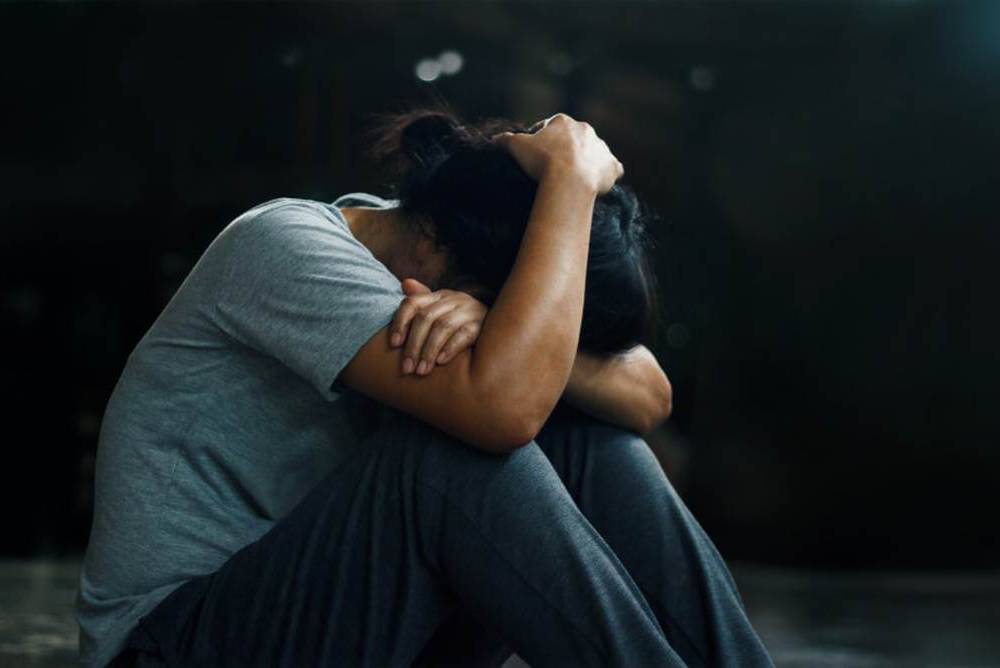A trigger is known as a psychological term and it is often used in the mental health field. A trigger can be defined as something that sets off a memory or emotional response. Triggers are different for everyone and can be caused by anything from a sound to a smell. In this blog post, we will discuss what triggers are, their warnings, and how to get help if you are struggling with them.
Contents
What Does Trigger Mean?
 A trigger is referred to anything that sets off a memory or reaction in someone who has post-traumatic stress disorder (PTSD). These triggers can be events, people, places, sounds, smells – anything that reminds the person of their trauma.
A trigger is referred to anything that sets off a memory or reaction in someone who has post-traumatic stress disorder (PTSD). These triggers can be events, people, places, sounds, smells – anything that reminds the person of their trauma.
For people with PTSD, the experience is not just a bad memory; it feels as if they are reliving the traumatic event all over again. This can be extremely distressing and may lead to panic attacks, flashbacks, and feeling on edge or hypervigilant.
Furthermore, the trigger sometimes leads to feeling hopeless, helpless, and alone. It is essential to understand that people with PTSD are not going through this experience because they are weak or crazy.
There are people who use the term “trigger” to describe anything that makes them feel uncomfortable. In fact, they connect this with other mental health conditions. However, this is not accurate. It overgeneralizes the experiences of people with PTSD and can be harmful.
How Trigger Is Formed?
Triggers are usually formed after a person experiences a traumatic event. The event could be something that happened to them personally or something they witnessed happening to someone else.
However, the exact formation of the trigger is not found by scientists. In fact, there are many theories about how the trigger works actually.
According to one theory, the trigger is created when a person’s brain tries to protect them from experiencing the trauma again. The brain does this by creating a memory of the event that is so vivid and real that it feels like the person is living through the event again. This can be extremely distressing for the person and can cause them to feel like they are in danger even though they are not.
Another theory suggests that triggers are formed because of genetics. This means that some people are simply more prone to developing triggers than others. And, in this way, it can be seen as an evolutionary adaptation. This theory suggests that people who are more likely to develop triggers are more likely to survive because they are more likely to avoid situations that could lead to them being harmed.
Regardless of how triggers are formed, they can have a profound effect on a person’s life. And at this situation, it becomes important to handle the situation.
What Are The Warnings Of Trigger?
 A trigger warning is something that someone uses to warn other people about something that might upset them. It can be used for anything from anxiety and depression to more serious things like PTSD. For example, if you are going to watch a movie with a lot of violence in it, you might put up a trigger warning so that people who have been through something similar can choose not to watch it.
A trigger warning is something that someone uses to warn other people about something that might upset them. It can be used for anything from anxiety and depression to more serious things like PTSD. For example, if you are going to watch a movie with a lot of violence in it, you might put up a trigger warning so that people who have been through something similar can choose not to watch it.
Trigger warnings are often working as a notice of potential distress for people with anxiety, depression, PTSD, or any other mental illness. It helps them to be more prepared for what they are about to see or read.
While some people may find trigger warnings helpful, others find them to be unnecessary and even harmful. Some argue that trigger warnings can cause people to avoid anything that might make them uncomfortable, which could lead to a further decline in their mental health. Others argue that trigger warnings are a form of censorship and that we should be able to handle whatever comes our way.
Understanding With Research Examples
Let’s understand with a few examples of research that has been conducted in this area:
- An article published in the Harvard Review of Psychiatry in 2016 found that trigger warnings may lead to increased anxiety and avoidance behavior in people with PTSD.
- A study published in Frontiers in Psychology in 2017 found that people who have a lot of anxiety are more likely to find trigger warnings helpful, while people who have less anxiety are more likely to find them harmful.
- A survey of college students published in the Journal of Controversial Ideas in 2018 found that most students believe trigger warnings are either helpful or not harmful, but a small minority believed they were harmful.
Another very little research on this suggests that specific triggers are very hard to predict. Therefore, the generic warnings on classroom syllabi or at the beginning of movies might not be as effective as they could be.
It is still not clear whether trigger warnings help or harm people with mental illness. However, it is important to remember that everyone is different and what works for one person may not work for another. If you are struggling with your mental health, talk to your doctor or a therapist about whether trigger warnings might be helpful for you.
Possible Symptoms Of Trigger
 There are various symptoms that someone experiences when they have a trigger. It is important to remember that not everyone will experience the same symptoms and some people may not experience any at all. The most common symptoms could be physical and emotional.
There are various symptoms that someone experiences when they have a trigger. It is important to remember that not everyone will experience the same symptoms and some people may not experience any at all. The most common symptoms could be physical and emotional.
Physical symptoms include
- a feeling of being disconnected from one’s body.
- feeling like you are in a dream or nightmare.
- like you are outside of your body looking in
- feeling detached from the world around you
- increased heart rate and sweating
- trembling or shaking
- shortness of breath or hyperventilating
- dizziness or lightheadedness.
Emotional symptoms include
- feeling scared, hopeless, helpless, or alone
- feeling an intense need to escape the situation
- overwhelmed by emotions such as sadness, anger, shame, or numbness.
- feeling on edge or irritable
- difficulty concentrating or feeling like your mind is racing
- increased anxiety or panic attacks
- intrusive thoughts or flashbacks
These could be the symptoms that someone experiences when they have a trigger. It is important to remember that not everyone will experience the same symptoms and some people may not experience any at all.
Therefore, at times, it becomes difficult to deal with triggers. But, there are certain ways that could help you deal with them.
How To Deal With Trigger?
 Dealing with triggers can be difficult, but there are some things that you can do to help yourself.
Dealing with triggers can be difficult, but there are some things that you can do to help yourself.
Identify Your Trigger
This is the foremost and most important step. You need to be aware of what sets off your triggers. Some triggers are physical, such as certain sounds or smells. Others are psychological, such as feeling overwhelmed or stressed.
Once you know what your triggers are, you can start to work on avoiding them. And, you may be able to learn to cope with them better.
There are different ways to get help for triggers, and it will depend on the severity of your symptoms. If your symptoms are mild, you may be able to find helpful information online or in books. If your symptoms are more severe, you may need to see a therapist or counselor who can help you work through your triggers.
Talk To Someone Who Understands You
This is the second and most important thing to do when you are struggling with triggers. Find someone who understands what you’re going through and can offer support and advice.
This could be a friend, family member, therapist, or counselor. Talking to someone who understands can help you feel less alone and give you some helpful perspectives. Even, you can do better by joining a support group for people who have similar experiences.
Get Help If You Need It
If you are struggling to cope with your triggers, don’t hesitate to get help. This is not a sign of weakness. In fact, it takes a lot of strength to reach out for help.
If you need more support than friends and family can provide, there are many professionals who can help you work through your triggers. These include therapists, counselors, psychologists, and psychiatrists. Seek professional help if you are having difficulty functioning in your everyday life or if you are thinking about harming yourself or others.
You don’t have to face triggers alone. There is help available if you need it. Reach out to someone who understands and
Avoid Your Trigger
This may not always be possible, but if you can avoid your triggers. And, not to forget it is the most effective way to deal with them. If you know that certain places, people, or things trigger your symptoms, try to avoid them.
Of course, this is not always possible. But, if you can avoid your triggers when possible, it will help you feel better and may prevent your symptoms from getting worse.
Use Coping Skills
When you can’t avoid your triggers, there are still things that you can do to help yourself cope with them. This is where having some good coping skills comes in handy.
There are many different coping skills that you can use depending on your needs and preferences. Some common coping skills include;
- deep breathing exercises.
- relaxation techniques.
- journaling.
- positive self-talk.
By practicing some of these coping skills, you can efficiently deal with your trigger. Further, it will help you to feel better and may prevent your symptoms from getting worse.
Try To Avoid Any Substances
 It is often important to avoid any substances that may trigger a person’s anxiety. For some people, this may mean avoiding caffeine, alcohol, or cigarettes. For others, it may be necessary to avoid certain foods or medications.
It is often important to avoid any substances that may trigger a person’s anxiety. For some people, this may mean avoiding caffeine, alcohol, or cigarettes. For others, it may be necessary to avoid certain foods or medications.
Identifying triggers is often a process of trial and error. Keeping track of what causes anxiety can help a person learn to avoid them. If you think you might have an anxiety disorder, talk to your doctor. Professional help can guide you in a better way.
Conclusion
Conclusively, triggers are a normal part of life. They can be caused by many different things. And often lead to negative behaviors or reactions. If you find yourself struggling with triggers, there are many resources available to help you cope.
In addition, people must learn to manage and understand their triggers in order to stay healthy and happy. If you think you might have a problem with triggers, don’t hesitate to reach out for help. Remember, you are not alone.
Therefore, if you feel like getting professional help. Then, go for it without any hesitation. It is important to get help with triggers.
A Word From Therapy Mantra
Your mental health — Your psychological, emotional, and social well-being — has an impact on every aspect of your life. Positive mental health essentially allows you to effectively deal with life’s everyday challenges.
At TherapyMantra, we have a team of therapists who provide affordable online therapy to assist you with issues such as depression, anxiety, stress, workplace Issues, addiction, relationship, OCD, LGBTQ, and PTSD. You can book a free therapy or download our free Android or iOS app.


